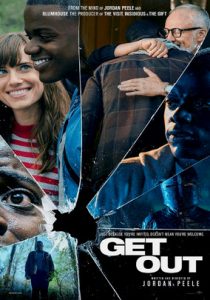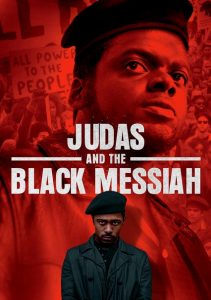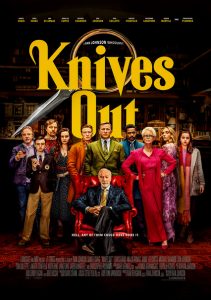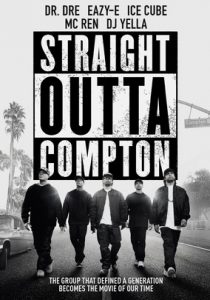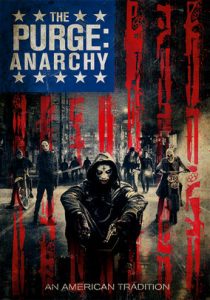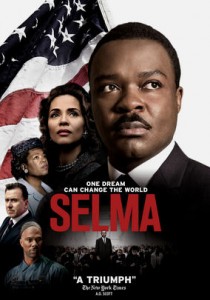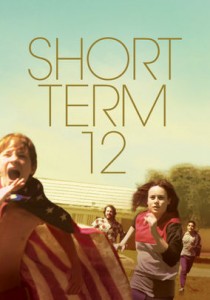Get Out-2017
Director Jordan Peele
Starring Daniel Kaluuya, Allison Williams
Top 250 Films #158
Top 40 Horror Films #24
Scott’s Review #629
Reviewed March 28, 2017
Grade: A
Get Out (2017) is a unique modern-day horror film that combines classic horror elements (notably, great camera angles to elicit jumps) with a touch of slapstick humor, a rare blend in the horror genre.
In the case of Get Out, all of these tidbits come together in a marvelous experience. The subject matter is rather risqué (see below), a plus for me as I like films that push the envelope a bit.
Indeed, as with most horror films, liberties must be taken regarding plot points and continuity issues, but this film is impressive work.
Given that it is director Jordan Peele’s directorial debut, kudos.
Chris Washington (Daniel Kaluuya) is a young photographer who is handsome, educated, and enjoying life. He is black, and his girlfriend, Rose, is a pretty white girl from an affluent upbringing—it is implied that they are opposites on the social scale.
One weekend, they travel out of the city (presumably New York City) to visit Rose’s parents in the country. Her parents, Dean and Missy, own a sprawling estate with acres of land. Nervous to meet Rose’s parents and make a good first impression, Chris notices that Dean and Missy’s servants are all black and act peculiarly.
Soon, it is revealed that Chris’s mother died when he was a little boy, and when Missy hypnotizes Chris, things begin to go from strange to downright scary.
I adore how the film immediately feels ominous—there is simply something not “right” with the situation. Even before Chris and Rose arrive at her parents’ estate, something seems off.
They hit and kill a deer with their car, the policeman who aids them seems racist, and despite Rose seeming fresh-faced, she also seems not to be trusted.
There are so many ominous warnings not to approach her parents’ house that when they finally do arrive, the audience is compelled to watch for more, perhaps while biting fingernails nervously.
Jordan Peele’s decision to keep everything cheery and bright for most of the film only makes the audience wonder what secrets lurk in the grand estate—the setting where most of the action takes place.
When the pair finally arrives at her parents’ house, everything is out of whack. The film undoubtedly borrows from The Stepford Wives (1975) in some of the characters’ pleasant, almost robotic cheerfulness.
The big reveal and the objectification of all of the black characters —specifically black males —can indeed be cause for debate. The racial motives of the characters are also only skimmed over and never discussed or rationalized in detail.
The physical strength and resilience of black men are mentioned a few times, and Rose’s parents, a psychologist and a neurosurgeon, are significant points in the story. Still, the intentions are somewhat wishy-washy and hardly plausible.
Peele mixes a hilarious scene amid the doom and gloom in a wise move.
The comic relief of the film, Rod, Chris’s best friend and proud TSA agent, calls the police and describes in detail his fears of a sex slave operation, which results in the police having a good guffaw- at Rod’s expense. Rod serving as an instrumental part of the film’s conclusion is a fantastic decision, mixing dark humor with more grotesque horror moments.
This succeeds in setting Get Out well above the traditional genre.
The acting by all parties is believable and deserving of acclaim, but newcomer (to me) Kaluuya carries the film very well, even offering more than one heartfelt dramatic scene, mostly when remembering his mother.
Allison Williams (a dead ringer for a young Jennifer Connelly) is also a marvel, as the character changes direction mid-stream and essentially becomes a different character.
Fantastic are the throwback elements of The Stepford Wives, complete with a similar setting. The film does not reveal whether “in the country” is Connecticut or upstate New York.
The Stepford Wives was Connecticut.
Get Out (2017) is a fresh, novel approach to the standard elements of horror. It mixes comedy and aspects of race into a story brimming with suspense, good frights, and fascinating camera angles.
This film, a great success at the box office, doesn’t seem like the typical sequel, but I am intrigued by what more it could offer.
Oscar Nominations: 1 win- Best Picture, Best Director- Jordan Peele, Best Actor- Daniel Kaluuya, Best Original Screenplay (won)
Independent Spirit Award Nominations: 2 wins- Best Feature (won), Best Director- Jordan Peele (won), Best Male Lead- Daniel Kaluuya, Best Screenplay, Best Editing
